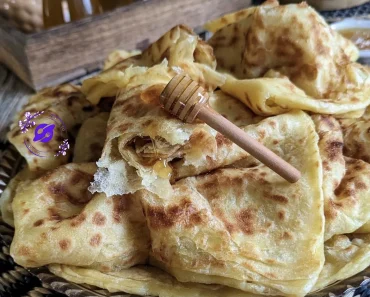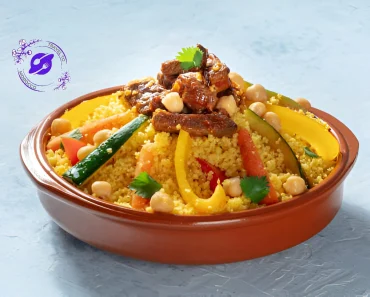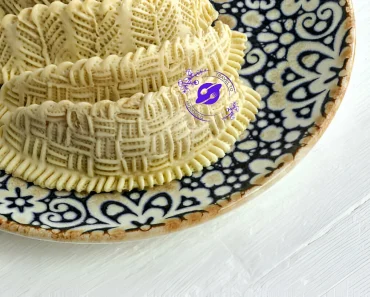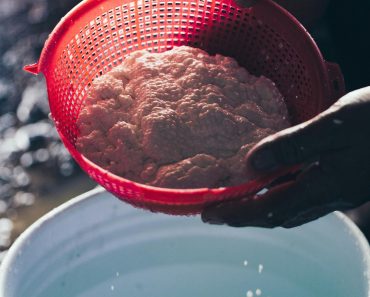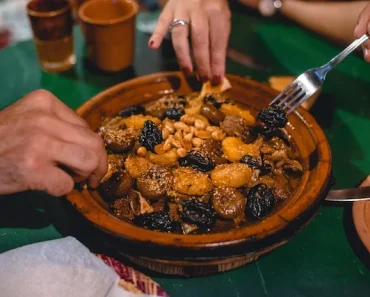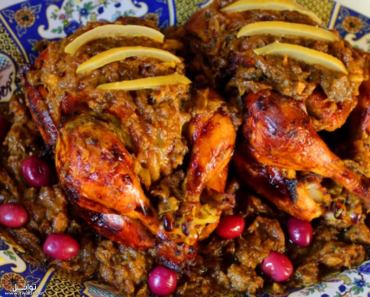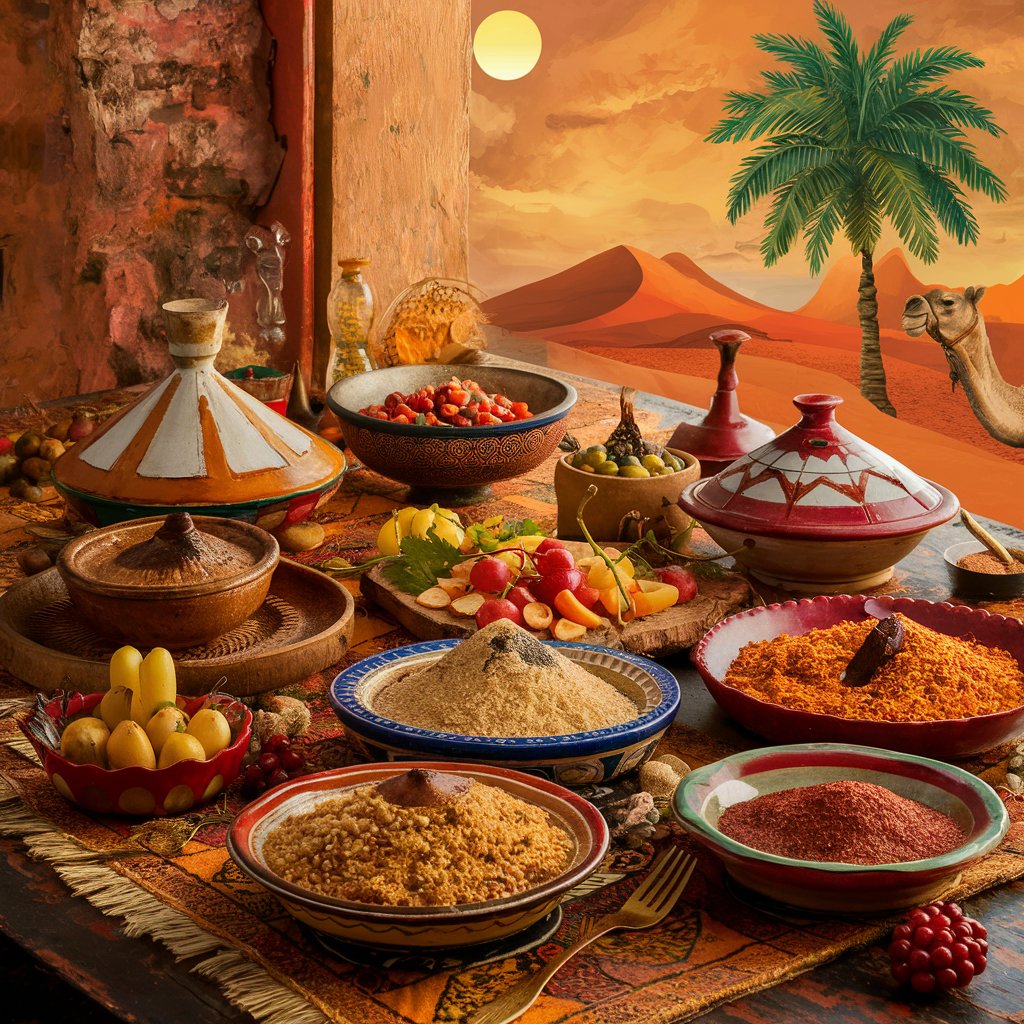
Moroccan Cuisine
Exploring the Health Benefits of Moroccan Cuisine
“Discover the rich flavors and health benefits of Moroccan cuisine. From antioxidants to heart health, savor the goodness of Moroccan dishes.”
Exploring the Rich Flavors of Moroccan Cuisine
Embark on a culinary journey to the vibrant land of Morocco, where the artistry of flavor and the warmth of tradition blend seamlessly in every dish. Moroccan cuisine, renowned for its rich history and diverse influences, captivates the senses with an array of spices, aromas, and textures that reflect the country’s cultural tapestry. From the bustling souks of Marrakech to the coastal towns of Essaouira, the essence of Moroccan gastronomy is deeply rooted in centuries-old traditions, yet continues to evolve with modern tastes and trends.
Unlocking the Secrets of Moroccan Culinary Heritage
At the heart of Moroccan cuisine lies a treasure trove of culinary delights, each dish a testament to the country’s storied past and dynamic present. Influenced by a melting pot of Berber, Arab, Andalusian, and Mediterranean cultures, Moroccan cooking is a fusion of flavors that delights and surprises at every turn. From the iconic tagines simmering with tender meats and aromatic spices to the fluffy couscous adorned with an array of vegetables and savory sauces, Moroccan cuisine invites exploration and indulgence in equal measure. Join us as we delve into the intricate tapestry of Moroccan culinary heritage, uncovering the secrets behind its renowned dishes and savoring the rich flavors that have enchanted food enthusiasts around the globe.
Exploring the Tapestry of Moroccan Food Culture
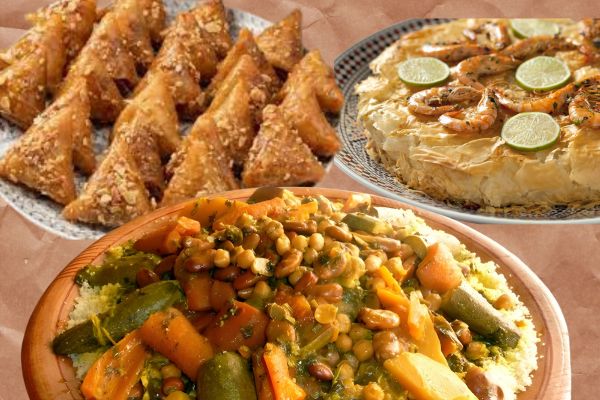
Moroccan Cuisine
Step into the vibrant world of Moroccan food culture, where ancient traditions and modern influences converge to create a culinary mosaic like no other. From the bustling markets of Casablanca to the tranquil riads of Fez, Moroccan cuisine embodies a rich tapestry of flavors, customs, and rituals that have been passed down through generations. Rooted in a deep reverence for family, community, and hospitality, Moroccan food culture is a celebration of life’s abundance and diversity.
Unveiling the Essence of Moroccan Gastronomy
Lies a profound connection to the land, the sea, and the rich tapestry of cultural influences that have shaped its culinary identity in the core of Moroccan food culture. From the fragrant spices of the souks to the fresh seafood of the Atlantic coast, each ingredient tells a story of resilience, ingenuity, and the enduring spirit of the Moroccan people. Join us as we embark on a journey to unravel the mysteries of Moroccan food culture, exploring its traditions, techniques, and timeless rituals that continue to enchant and inspire food lovers around the world.
Tracing the Roots of Moroccan Gastronomy
A journey through time as we uncover the captivating history of Moroccan cuisine, a culinary tradition steeped in centuries-old customs, influences, and flavors. From the ancient spice routes of the Silk Road to the shores of the Mediterranean, Moroccan gastronomy has been shaped by a rich tapestry of cultural exchanges, migrations, and conquests, each leaving an indelible mark on its culinary landscape.
Exploring Influences Shaping Moroccan Gastronomy
At the crossroads of Africa, Europe, and the Middle East, Morocco has long been a melting pot of cultures, religions, and civilizations, each contributing to the vibrant mosaic of its culinary heritage. From the Berber tribes of the Atlas Mountains to the Arab conquerors of the medieval era, Moroccan cuisine reflects a synthesis of diverse culinary traditions, blending indigenous ingredients with exotic spices and techniques to create dishes that are as complex as they are delicious. Join us as we delve into the influences shaping Moroccan gastronomy, from the traditional ingredients and cooking methods passed down through generations to the modern
Essential Moroccan Dishes
Morocco’s culinary delights. Explore essential Moroccan dishes:
-
Tagine: Slow-cooked stews bursting with flavor.
-
Couscous: Fluffy semolina served with savory toppings.
-
Moroccan Mint Tea: Refreshing and aromatic, a national favorite.
Experience the richness of Moroccan cuisine firsthand.
Regional Varieties in Moroccan Cuisine
Explore the diverse flavors of Moroccan cuisine across its regions. From the mountains to the coast, each area offers unique culinary experiences:
-
Atlas Mountains: Savory tagines and hearty couscous dishes infused with mountain herbs.
-
Coastal Towns: Fresh seafood delicacies, grilled to perfection and seasoned with coastal spices.
-
Sahara Desert: Nomadic-inspired cuisine featuring preserved meats, dried fruits, and aromatic spices.
Indulge in a gastronomic journey through Morocco’s varied landscapes. Taste the essence of each region’s culinary heritage.
Key Ingredients in Moroccan Cooking
Enjoy a delicious exploration of Moroccan cuisine’s essential ingredients. Discover:
-
Spices: From cumin and cinnamon to saffron and paprika, adding depth to every dish.
-
Staple Ingredients: Lamb, chicken, and vegetables like eggplant and zucchini.
-
Nuts, Fruits, and Honey: Almonds, dates, figs, and honey for sweet and savory harmony.
Dive into Moroccan cooking and savor the richness of its flavors.
Traditional Cooking Techniques
Culinary journey through Morocco’s time-honored cooking techniques. Explore:
-
Slow Cooking in Tagines: Tender meats and vegetables simmered to perfection, infused with aromatic spices.
-
Grilling Over Charcoal: Traditional Moroccan barbecues, imparting smoky flavors to meats and vegetables.
-
Preservation Methods: From drying fruits and vegetables to pickling olives and lemons, preserving flavors for the future.
Immerse yourself in the artistry of Moroccan culinary traditions. Experience the timeless techniques that have shaped its flavorful cuisine.
Cultural Significance of Moroccan Food
Moroccan food holds profound cultural significance, serving as a cornerstone of hospitality and community bonding. Sharing meals is a cherished tradition, symbolizing warmth, generosity, and connection among family and friends. The act of breaking bread together fosters deep social bonds and strengthens the fabric of Moroccan society.
Beyond mere sustenance, Moroccan cuisine embodies a rich tapestry of history, identity, and heritage. Each dish reflects the country’s diverse cultural influences, from the indigenous Berber tribes to the Arab conquerors and Andalusian refugees. Through its flavors and traditions, Moroccan food serves as a living testament to the nation’s resilience and multicultural heritage.
Moreover, Moroccan culinary customs play a central role in celebrations, festivals, and religious rituals throughout the year. From lavish feasts during Eid al-Fitr to the fasting practices of Ramadan, food serves as a focal point for communal gatherings and spiritual observance. The preparation and sharing of traditional dishes not only nourish the body but also nourish the soul, fostering a sense of unity and belonging within Moroccan communities.
Modern Trends and Fusion in Moroccan Food
In recent years, Moroccan cuisine has experienced a renaissance, blending traditional flavors with modern culinary innovations. Chefs around the world are putting their own spin on classic Moroccan dishes, infusing them with global influences and contemporary techniques. This fusion of old and new has resulted in a dynamic culinary landscape that appeals to adventurous palates and celebrates the diversity of flavors.
From upscale restaurants to trendy food trucks, Moroccan-inspired fusion cuisine is gaining popularity across the globe. Dishes like Moroccan-spiced burgers, harissa-infused tacos, and couscous salads with a modern twist are captivating food enthusiasts everywhere. This culinary cross-pollination not only introduces Moroccan flavors to new audiences but also breathes new life into age-old recipes, ensuring that Moroccan cuisine remains relevant and exciting in the ever-evolving world of food.
Table for “Health Benefits of Moroccan Cuisine:Haut du formulaire
Benefit |
Description |
Rich in Antioxidants |
Moroccan cuisine is abundant in spices like cumin, cinnamon, and turmeric, which are rich in antioxidants that help reduce inflammation and fight against diseases. |
Heart-healthy |
With its emphasis on lean proteins like fish and chicken, along with heart-healthy fats from olive oil and nuts, Moroccan cuisine can promote cardiovascular health. |
High in Fiber |
Ingredients like lentils, chickpeas, and vegetables in Moroccan dishes provide a good source of dietary fiber, aiding digestion and promoting a healthy gut. |
Low in Processed Sugars |
Traditional Moroccan desserts often use natural sweeteners like honey and dates instead of processed sugars, making them a healthier alternative for satisfying a sweet tooth. |
Supports Weight Management |
With its focus on whole grains, lean proteins, and vegetables, Moroccan cuisine can help maintain a healthy weight and prevent obesity when part of a balanced diet. |
Embark on a flavorful journey through Moroccan cuisine with these helpful tips:
-
Seek Authenticity: Look for restaurants that specialize in Moroccan cuisine and prioritize authenticity in their dishes.
-
Embrace Variety: Don’t hesitate to try a variety of dishes, from hearty tagines to delicate pastries, to fully experience the diversity of Moroccan flavors.
-
Savor the Spices: Let the aromatic spices of cumin, paprika, and saffron tantalize your taste buds, adding depth and complexity to each bite.
